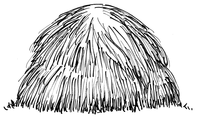A Most Priceless Possession
Dear old and new friends,
Your prized and richest possession isn’t in a bank vault or insured by Lloyds of London! The American philosopher psychologist William James said, “The deepest principle in human nature is the craving to be appreciated.” That can mean many things, but central is that your most cherished possession is your good name.
The Zen master Hakuin was a hermit renowned by his local village as a saintly man of poverty and prayer. Villagers came up the mountain to a large rock some distance from his remote hermitage to leave gifts of food for him that often included notes asking for his prayers. One day a respected young woman in the village, being pregnant, announced loudly to everyone that Hakuin was the man responsible for her pregnancy! Shocked, she and her family, along with the village elders, angrily marched up beyond the large rock directly to his hermitage. With loud insults and shouts of hypocrisy they denounced Hakuin for being the father of her child. Standing at the door of his hut, the monk said only, “Is that so?”
When the time came for the delivery of the child the villagers were amazed that the hermit Hakuin came down their village. Now the girl’s family wanted nothing at all to do with this shameful baby, but the old monk took the infant into his arms and lovingly carried it up to his hut. There he fed and cared for the infant and lovingly fondled it as his very own. A year and a half after the child’s birth had passed, the child’s mother became overcome with guilt. She publically announced that the child’s father wasn’t the Zen monk, but rather a local young farmer. Now overwhelmed with disgrace and humiliation, the entire village, led by the young girl and her family, climbed the mountain up to the small hut of Hakuin. They stood outside loudly proclaiming their sorrow and regrets for how they had stained with shame the holy man’s reputation. The young woman asked him to have her baby back, and told Hakuin who was the real father of the child. When she finished, the crowd surrounding his hut and waited in silence. Then handing her child back to her, Hakuin said, “Is that so?”
Let us perform on this Zen story an autopsy so to find in it some personal applications for ourselves. We begin with the Zen monk’s poverty or simplicity that included his invisible property, his good name and reputation. When this was taken away, he didn’t loudly proclaim his innocence, nor challenge his accusers to prove his guilt. He only quietly asked, “Is that so?” Ask yourself if you were accused by your neighbors of such sexual misconduct, how would you respond? Ponder your reputation, your name or position in your community. Today, sexual accusations, true or not, become gossip and front page news. Sadly, once someone is charged with sexual misbehavior and later is found not guilty, that untrue allegation casts long indelible dark shadows over them.
So when next you learn someone in your community or local church is accused of some shocking behavior, rather than replying with stunned condemnation, instead answer wisely as did the Zen monk Hakuin, “Hmm…is that so?”



 RSS Feed
RSS Feed